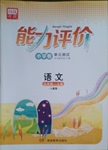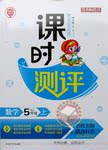题目内容
Unlike chemists and physicists, who usually do their experiments using machines, biologists and medical researchers have to use living things like rats. But there are three Nobel prize-winning scientists who actually chose to experiment on themselves – all in the name of science, reported The Telegraph.
1. Werner Forssmann (Nobel prize winner in 1956)
Forssmann was a German scientist. He studied how to put a pipe inside the heart to measure the pressure inside and decide whether a patient needs surgery.
Experiments had been done on horses before, so he wanted to try with human patients. But it was not permitted because the experiment was considered too dangerous.
Not giving up, Forssmann decided to experiment on himself. He anaesthetized (麻醉) his own arm and made a cut, putting the pipe 30 centimeters into his vein. He then climbed two floors to the X-ray room before pushing the pipe all the way into his heart.
2. Barry Marshall (Nobel prize winner in 2005)
Most doctors in the mid-20th century believed that gastritis was down to stress, spicy food or an unusually large amount of stomach acid. But in 1979 an Australian scientist named Robin Warren found that the disease might be related to a bacteria called Helicobacter pylori.
So he teamed up with his colleague, Barry Marshall, to continue the study. When their request to experiment on patients was denied, Marshall bravely drank some of the bacteria. Five days later, he lost his appetite and soon was vomiting each morning – he indeed had gastritis.
3. Ralph Steinman (Nobel prize winner in 2011)
This Canadian scientist discovered a new type of immune system cell called the dendritic cell. He believed that it had the ability to fight against cancer.
Steinman knew he couldn’t yet use his method to treat patients. So in 2007, when doctors told him that he had cancer and that it was unlikely for him to live longer than a year, he saw an opportunity.
With the help of his colleagues, he gave himself three different vaccines based on his research and a total of eight experimental therapies(疗法). Even though Steinman eventually died from his cancer, he lived four and a half years, much longer than doctors had said he would.
1.The main purpose of the passage is to ________.
A. present some dangerous experiments that Nobel prize winners did on themselves.
B. list difficulties that scientists went through in order to make important discoveries.
C. explain why some scientists chose to experiment on themselves.
D. introduce a few Nobel prize winners who did experiments on themselves.
2. Which of the following is TRUE according to the article?
A. Forssmann’s experiment ended in failure.
B. Forssmann had the pipe pushed all the way into his heart.
C. Barry Marshall succeeded by drinking some Helicobacter pylori.
D. Barry Marshall’s experiment on himself confirmed that most doctors’ belief about gastritis was correct.
3.The underlined word “gastritis” in Paragraph 5 probably means ______.
A. a kind of bacteria B. a kind of stomach disease
C. a new type of therapy D. a large amount of stomach acid
4.From the text, we can conclude that Ralph Steinman ______.
A. discovered a new type of cancer cell called the dendritic cell
B. tried different therapies containing the dendritic cell on himself
C. had his request to experiment on patients denied
D. believed that he was better than doctors at treating cancer
5.Where can we read such a passage?
A. In a newspaper. B. In a poster.
C. In a textbook. D. In a science book.
1.D
2.C
3.B
4.B
5.A
【解析】
试题解析:不同于化学家和物理学家使用仪器进行试验,生物学家、医学专家使用像老鼠一样的生物进行试验。但是,有三个获得过诺贝尔奖的科学家,他们是用自己的身体进行试验的。
1.根据But there are three Nobel prize-winning scientists who actually chose to experiment on themselves”和文中的小标题可知,文章主要介绍了三个以自己作为研究对象的获得诺贝尔奖的科学家,故选D。
2.根据Marshall bravely drank some of the bacteria.”可知,Barry Marshall亲自喝下了幽门螺杆菌,故选C。
3.根据.the disease might be related to a bacteria called Helicobacter pylori”可知,划线词指的是一种疾病,故选B。
4.根据With the help of his colleagues, he gave himself three different vaccines based on his research and a total of eight experimental therapies.”可知,Ralph Steinman给自己注射过三次基于他的研究的不同的疫苗,进行了八次实验性治疗,故选B。
5.小题5】推理判断题。A. In a newspaper报纸. B. In a poster.海报 C. In a textbook.课本 D. In a science book.科学书。本文是一篇关于科学的报道主要介绍了三个以自己作为研究对象的获得诺贝尔奖的科学家。因此选A 。
考点:科学类文章

 能力评价系列答案
能力评价系列答案 唐印文化课时测评系列答案
唐印文化课时测评系列答案Kitty, Kelly, Aidan, Bruce 和Pamela分别就父亲对自己的影响表达了看法(1-5)。阅读下面他们发表在某网站论坛上的文章(A、B、C、D、E和F),选出最符合他们所表达的看法的选项。选项中有一项是多余选项。
1. Kitty: Dad encouraged me to show great determination to do anything.
2. Kelly: Dad gave me a new life which is full of love and happiness.
3. Aidan: Dad is the person who introduced me to my sports career.
4. Bruce: Dad taught me to share housework and take family responsibility.
5. Pamela: Dad shows me that the most important in life is our family.
A | B |
Dear Daddy, you stepped into my life years ago, and became my dad, a man who raised three fatherless kids and adopted(领养) another. It didn’t matter to you or us whether we were your biological kids or not—you are our dad! You did everything humanly possible for us, and you managed to have taken care of Mom, who has been sick, and the grandkids as well. Lessons we learned are love and compassion and kindness…We love you dearly. | My dad taught me how to play basketball. He taught me how to pivot, throw three pointers, and do lay-ups and dunks. Now I am a pro (职业球员) at basketball. When I played basketball in December, I was a good guard. Although I sometimes didn’t play very well and my team lost the game, my dad always encouraged me never to lose heart. Now I have a dream that when I grow up I can play basketball on the Celtics. I love my dad! |
C | D |
The most important thing that my dad ever taught me was “Stick to it. Never do anything halfway”. He always told me that by doing your very best, you prove your ability, commitment and character. This advice was what I always kept in mind, whether I was removing the snow from the driveway, helping do the volunteer work in the nursing house or completing my last course in graduate school. “It shows what kind of person you are,” my dad would say. “People will remember and respect you for that.” I do remember and respect my dad’s advice, which will guide me to do anything. | My dad has taught me many things. He has taught me love, hope, respect, discipline and the value of hard work. He has taught me never to be afraid, but when I am, his arms are always open for me to run into. He has taught me the value of a job well done. He has taught me how to ride a bike, then to drive a car. He always tells me that he believes in me and that I can manage to deal with the things around me. He is teaching me how to grow up but not grow apart. My dad is always there for me, and he has told me that he always will be. |
E | F |
My dad teaches me throughout my lifetime to present day that family is first. He says, “As the father, you should put your own wants and needs aside to make sure that your wife and children have the best that life has to offer.” He did this without failing every day of our lives, without words or empty promises; instead, through sleepless nights and tireless actions always with a smile. His words always remind me what I should do for the family. I am proud to be his son. I love you, Dad. | My dad and I have a funny company we call “Priority”. It changes depending on the household chores we’re doing. He has taught me how to take care of the pool (Priority Pools), how to program garage doors (Priority Garages), how to plan family birthday parties (Priority Parties), how to install dishwashers (Priority Dishwashers) and how to clean the computer (Priority Computers). The list goes on. I’m proud of my dad, and grateful for my time with him. We have so much fun doing projects together. |